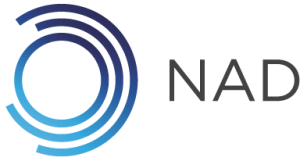This project used global learning about common weaknesses in inclusive education teacher training to develop an alternative approach.
The need for a different approach
Inclusive education training for teachers is often very limited. In many countries, teachers receive inadequate training on inclusion during their pre-service training. Teachers start their careers largely unaware of learners’ inclusion rights or of the teacher’s responsibility and potential to be inclusive.
Teachers who do learn about inclusive education often do so through short, one-off, in-service courses. Such courses might raise their awareness of inclusion (often with a focus on specific disability issues), but are usually not sufficiently comprehensive to equip teachers with the new skills and confidence they need to change how they work in school and class.
Read a journal article from EENET about the need for a different approach.
Making changes
Using evidence from past project evaluations, Norwegian Association for Persons with Developmental Disabilities (NFU) and Norwegian Association of Disabled (NAD) recognised the common problems with teacher training and sought to trial a different approach through its partnership programmes.
With technical support from EENET, the NFU/NAD-funded inclusive education programmes in Zambia and Zanzibar developed an approach with three key characteristics:
- Teacher training modules are developed and tested collaboratively by the trainers who will deliver them, with support from EENET, rather than being written entirely by an external expert. The trainers experience, and practise facilitating, participatory training activities so that they can use more learner-centred approaches when training teachers.
- The training modules offer teachers a gradual immersion in inclusive education. The modules build teachers’ knowledge, skills and commitment through a series of short courses that progress from general to more specific topics. The teachers learn through a diverse range of active-learning activities which helps them to use more learner-centred approaches when teaching in their own classrooms.
- Pre-service trainers are involved from the start, to improve the likelihood that the new training resources will be relevant for and taken up by pre-service teacher training institutions.
Expanding the approach
Since late 2019, NAD and EENET have worked with other partners in the Together for Inclusion (TOFI) consortium to adapt the teacher training approach in Uganda, Somalia, Mozambique and Ethiopia.
The teacher training work has been combined with an initiative to support organisations of persons with disabilities (OPDs) to become more effective advocates in inclusive education.
The inclusive education work within the TOFI programme has become known as the Inclusive Learning Approach (ILA). It consists of the Inclusive Teaching Component (teacher training) and the Inclusive Advocacy Component (OPD advocacy development).
Further reading
Read more about the ILA Inclusive Teaching Component (teacher training) process which includes careful selection of trainers and collaborative development of training materials.
Briefing paper: ‘Innovation in Inclusive Education Teacher Training. Sharing our Experiences’ (2019). This paper (available in PDF and Word) answers a lot of frequently asked questions about the training approach. In late 2023/early 2024 there will be a new guide published offering updated and more comprehensive advice on using and adapting the ILA Inclusive Teaching Component.
‘Learning review of the NAD-supported inclusive education teacher training pilot programme in Zambia’ (2019). This report (available in PDF and Word) records Zambia’s project activities and results, and analyses alignment with the project’s original theory of change.
This project is a collaboration between NAD and EENET.


